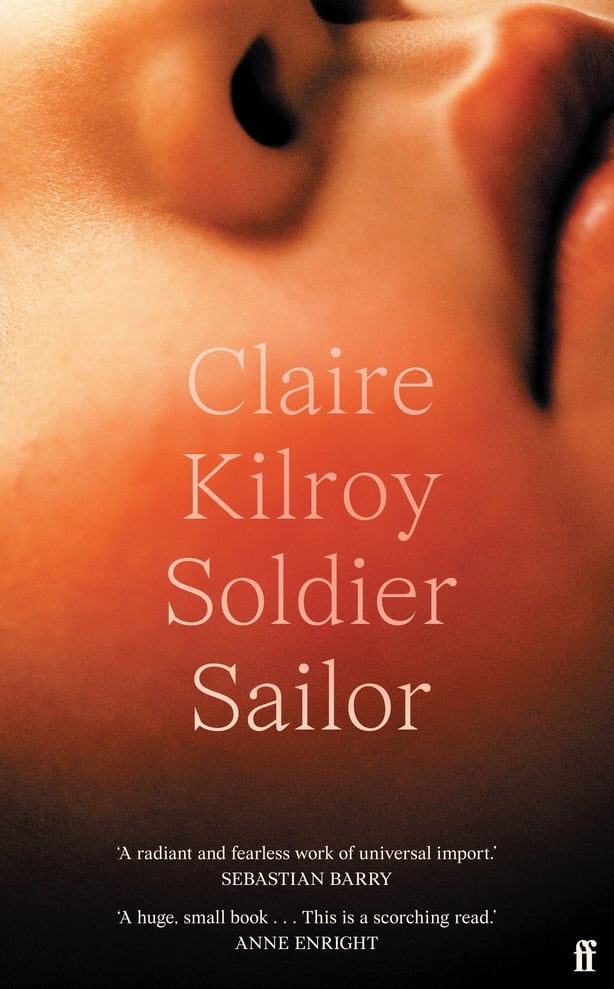In the opening section of Claire Kilroy's latest novel – her fifth, and first in 11 years – the unnamed narrator recalls abandoning her newborn son on a cliff walk just months after giving birth, striving to explain her reasons for doing so with a brave, heart-stricken and searing honesty.
This territory is familiar for Kilroy, who published an essay, F for Phone, in 2015’s Winter Papers anthology about how she lost her ability to write, and therefore a connection to herself, after the birth of her son, Lawrence.
Her latest work, however, is an astounding exercise in self-dissection, a gripping portrayal of a new mother in the throes of postpartum chaos, and a glimpse into the tortured, ecstatic, harrowing and transformative experience of motherhood.
We need your consent to load this rte-player contentWe use rte-player to manage extra content that can set cookies on your device and collect data about your activity. Please review their details and accept them to load the content.Manage Preferences
Listen: Claire Kilroy talks to RTÉ Arena
In Soldier Sailor she joins the litany of literary mothers who interrogate this, armed with a writer’s tools – language, intelligence and empathy – to illuminate the daunting task at hand, the all-consuming love, the sudden willingness to kill for their child. "I swear every woman in my position feels the same", her unnamed narrator says at the novel’s start.
"I miss my old life like I’d miss a lover", Kilroy’s narrator says, and in many ways this novel reads like a ghost story or post-war epic, following a woman as she stands in the ruins of her life, haunted by former versions of herself, tormented by the looming future.
Its frenetic prose jumps from the near-catastrophic cliff walk, to baby and toddler mornings, to tedious afternoons spent prepping the dinner, to late-night arguments with her husband, all punctuated by the narrator’s efforts to be a good mother while trying to elucidate the struggle to do so.
As well as the emotional dissection, Kilroy is unrestrained when it comes to the physical toll of motherhood, asking at one point, "Why the burden fall on us, the females, with our ruptured bodies?"
The objective difference between the parenting experiences of mothers and fathers is laid bare, such as when the narrator considers men – like her husband – turning to films to feel connected to noble endeavours while women risk death for babies. "Tell me, men: when were you last split open from the inside?"
Motherhood also exposes the cracks in the bedrock of her marriage – of society at large – which she once thought egalitarian and modern. The inequalities are observed astutely, how her husband begins training "fanatically" since the birth of their son, "Defining himself in opposition to me, this wife who had grown weepy and soft".
The husband is almost comically enraging in his weaponised incompetence, yet in many ways entirely normal and believable – which only makes him more maddening. When she talks about missing work and feeling overwhelmed with parenting duties, he responds, "So get up earlier. Get up at five." Her photos of their son elicit just a smiley face, no further expression of love or encouragement.
Throughout these scenes of marital discord and homely mundanity is the narrator’s complicated feelings about being the mother of a son, and the concerns she has about the world he’ll grow into. "Parenting is gender segregation", she says at one point.
Mercifully in a book this intense, Kilroy shows her quick and wry wit, bringing a Dublin-born tender sarcasm to many scenes, such as her response to one "No!" After another from her son: "Do you give lessons in self-assertion?"
More memorable, though, are the grim quips, such as when comparing little girls and their confidence to her son, or herself: "But don’t worry, Sailor: you’ll still be paid more than them."
Kilroy’s phrasing strikes the balance between lyrical, in the mode of a no doubt great inspiration, Sylvia Plath, and realistic, the short, often grandiose aphorisms of thought: "Loss of self, loss of self – hard to bear."
Contrasting this, however, are the odd lines that feel lifted from a parenting book and lose the confessional, lyrical touch that Kilroy has clearly perfected. "Studies show that screens before the age of two impact on a child’s development", the narrator tells her husband mid-argument, which after all the honesty and raw emotion of the novel simply doesn’t feel believable.
Still, stripped of the romance and staring down the barrel of the very real challenges that come with motherhood, Soldier Sailor is a knee-buckling depiction of love and all its terror and intensity, the threat of losing it, the responsibility of having it.

Soldier Sailor is published by Faber.


